#Arnold Schönberg Verklärte Nacht
Text
Miniaturen (Poetik zur Musik)
[Bild Putten mit Lyra (Laeishalle) ©: → Ajepbah / Wikimedia Commons]
In das Zentrum eines Festivals Miniaturen zu stellen, ist mehr als nur Programm. Es ist programmatische Metaphysik. Denn das Kleinste trennt vom Allen, vom All, oft kaum eine hauchdünne Wand. So erzählt Jorge Luis Borges von einem „regenbogenfarbenen Kreis von fast unerträglicher Leuchtkraft (…) und…
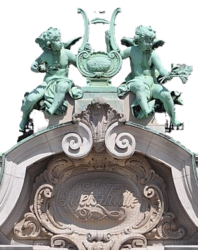
View On WordPress
#Adorno Negation#Alban Nikolai Herbst Engel Ordnungen#Alban Nikolai Herbst Melodien#Alban Nikolai Herbst Miniaturen#Alban Nikolai Herbst Scelsi-Variation#Aribert Reimann#Arnold Schönberg Verklärte Nacht#Ästhetik Literatur Fragment#Borges Aleph#Ernst Bloch Kitsch#Franz Kafka#Friedrich Nietzsche#Günter Bialas#Hamburg Ostertöne#Hans Carl Artmann grünverschlossene botschaft#Heinz-Klaus Metzger Webern Bagatellen#Johannes Brahms Alles eitel#Jorge Luis Borges Alban Nikolai Herbst#Jorge Luis Borges Aleph#Kosmos יהוה لله#Laeishalle Hamburg#musikalische Metaphysik#Negation Negativität Moderne#Walter Benjamin Maimonides
0 notes
Text
1 note
·
View note
Text
09.19.2024 RCO Amsterdam
Arnold Schönberg, Verklärte Nacht
Gustav Mahler - Symfonie nr.1, 'Titan'
0 notes
Text
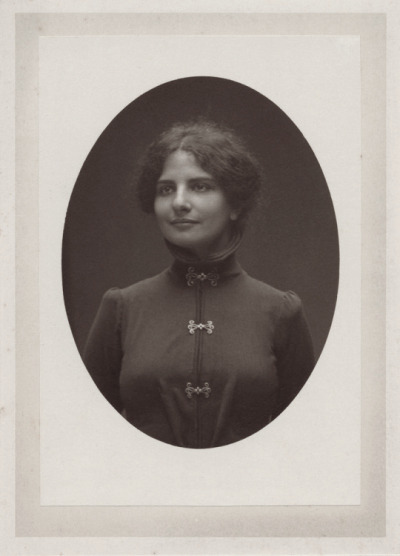
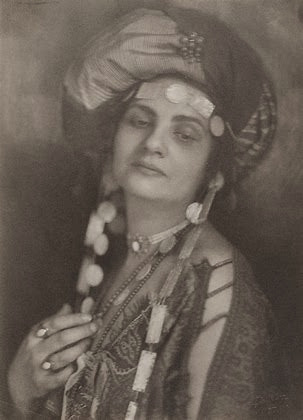
Ida Dehmel: Die Muse Stefan Georges und anderer Poeten
Frankfurter Allgemeine Zeitung vom 15.1.2020
IDA DEHMEL :
Bei ihr ging ein und aus, wer als modern galt
VON CAROLIN VOGEL
Ida Dehmel (geb. Coblenz) war Kunstfreundin, Salonière und später auch Feindbild der Nationalsozialisten. Eine angemessene Würdigung ihres Werkes steht noch aus. Zeit an sie zu erinnern.
„Gibt es einen herrlicheren Lohn, als vielen Reihen von Menschen eine schöne Vorstellung zu sein?“, notierte Ida Dehmel 1906 in ihr Tagebuch. Sie war die Frau, die der damals in ganz Europa berühmte Dichter Richard Dehmel mit seinen Versen anbetete. Dehmels Bücher trugen Titel wie „Weib und Welt“ oder „Zwei Menschen“. Ida und er waren das Traumpaar der literarischen Jahrhundertwende. Mit der Vertonung von „Verklärte Nacht“ setzte Arnold Schönberg dieser über alle Konventionen erhabenen Liebe ein zeitloses Denkmal. […]
Der Weg ins Zentrum der Kunstwelt war der jungen Ida Coblenz keineswegs vorherbestimmt, als sie 1870 in Bingen am Rhein zur Welt kam. Der Vater, ein erfolgreicher jüdischer Weinhändler, erzog sie mit strenger Hand. Wie Lichtschächte sei die Kunst in ihr Leben hereingebrochen, formulierte die Tochter später. In der bürgerlichen Welt des wohlhabenden Elternhauses in der Provinz verschlang die junge Ida Bücher von Autoren wie Strindberg, Ibsen und Nietzsche, spielte leidenschaftlich Klavier und wurde zur frühen Gefährtin und ersten Liebe eines heranwachsenden Dichters: Stefan George.
Auf Wunsch ihres Vaters heiratete Ida 1895 einen Berliner Kaufmann namens Auerbach, seines Zeichens Konsul von Kolumbien. War der Ehe auch kein Glück beschieden, so entfaltete Ida Auerbach in der feudalen Wohnung am Tiergarten ihr Talent als Salonière. Nicht den arrivierten Künstlern, die man in den anderen Salons der Stadt antraf, galt ihr Interesse, sondern den jungen Wilden. Sie suchte die Komponisten neuer Lieder, die Maler neu entdeckter Welten, die Schöpfer eines neuen Sprachstils, präsentierte Namen wie Edvard Munch und Stanisław Przybyszewski.
Bald war der Rat der „Tiergartendame“ unter Künstlern geschätzt, ihre Hilfe gefragt. Neuen Kunstwerken zur Entstehung zu verhelfen wurde Idas Lebensthema.

1 note
·
View note
Text
Viktoria Mullova e il suo ensemble portano a Pesaro l’atmosfera magica di Schönberg
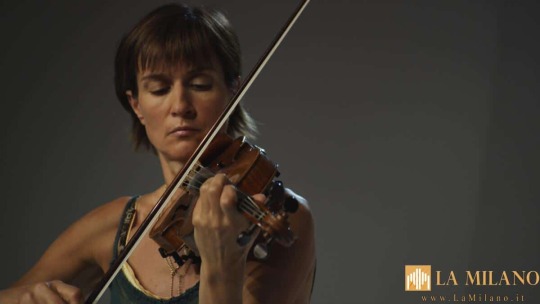
Viktoria Mullova e il suo ensemble portano a Pesaro l’atmosfera magica di Schönberg.
Martedì 31 ottobre (ore 21) attraverso musiche eterogenee, versi, danza, e un dispositivo scenico e luminoso, il Viktoria Mullova Ensemble condurrà il pubblico del Teatro Rossini di Pesaro nell’atmosfera magica di una foresta notturna, in un viaggio immersivo verso quell’ode all’amore profondamente commovente che è Verklärte Nacht (Notte trasfigurata) di Arnold Schönberg.
L’opera del 1899, seppur composta in giovane età, risulta ancora oggi estremamente significativa, segnando l’arrivo sulla scena della Nuova Musica, un soffio di rinnovamento rispetto alla tradizione tardo romantica che ancora imperava all’epoca della sua composizione. L’elemento dirompente della scrittura di Schönberg è stemperato dal bellissimo repertorio che ne farà da controcanto nel corso della serata pesarese, con musiche di J.S. Bach, B. Bartòk e C. Debussy tra gli altri: un programma eccezionale eseguito da un ensemble unico per qualità espressiva e capacità innovativa, accompagnato sul palco da coreografie e effetti visivi.
Il sestetto guidato dalla Mullova, celebre violinista che torna nuovamente ospite dell’Ente Concerti di Pesaro, è composto da artisti di grande spessore: Lisa Rieder (violino), già apprezzata dal pubblico pesarese nel 2021, Nils Mönkemeyer, Kinga Wojdalska (viola), Matthew Barley e Peteris Sokolovskis (violoncello). L’ensemble sarà accompagnato dalla taiwanese Ching-Ying Chien nel ruolo di mimo – su coreagrafia di Joshua Junker – e da Martin Langthorne che curerà l’allestimento tecnico dello spettacolo.
Per i membri dell’ensemble “il messaggio centrale di Verklärte Nacht (esplicito nel poema di Richard Dehmel e perciò implicito nella musica) è che l’amore ha il potere di trasformare e superare le difficoltà. La nostra presentazione si basa su questo messaggio, adattato al nostro tempo, per comunicare il nostro credo nella diversità, nell’inclusività, nel dialogo internazionale e nella tolleranza. L’idea è quella di creare un’efficace sequenza di brevi brani, presentati in un modo insolito, con messinscena e luci ispirate al poema, per portare il pubblico in uno stato di profonda concentrazione prima che Schönberg abbia inizio. Così che quei suggestivi re all’unisono di violoncello e viola si posino su orecchie già trasformate, e pronte per il viaggio. Speriamo di ispirare il pubblico a fare del cambiamento e della trasformazione qualcosa che riguarda la vita, e non solo l’arte!”
BIGLIETTI
Vendita biglietti Presso la biglietteria del Teatro Rossini dal mercoledì al sabato dalle 17 alle 19.30, il giorno del concerto dalle 10 alle 13 e dalle 17 fino ad inizio spettacolo Prezzi biglietti Posto di platea e posto di palco di I e II ordine € 20; ridotto € 15; posto di palco di III ordine € 16 ridotto € 13; posto di palco di IV ordine € 14, ridotto € 11; loggione € 8.
Vendita online Una parte dei posti disponibili viene messa in vendita online; l’acquisto può essere effettuato visitando il sito www.vivaticket.it. L’acquisto online comporta un aggravio del costo del biglietto in favore del gestore del servizio.
Informazioni Ente Concerti Palazzo Gradari Via Rossini 0721 32482 [email protected] e www.enteconcerti.it - Teatro Rossini, Piazzale Lazzarini, Pesaro 0721 387620 (biglietteria 0721 387621)....
#notizie #news #breakingnews #cronaca #politica #eventi #sport #moda
Read the full article
0 notes
Video
vimeo
Verklärte Nacht / Mahler 4 from Jörg Mannes on Vimeo.
Choreography: Jörg Mannes
Music: Arnold Schönberg / Gustav Mahler
Stage:: Thomas Rupert
Costumes: Ana Rosa Chanza
Conductor: Svetoslav Borisov
UA 22.10.2022 Theater Magdeburg
0 notes
Photo

The atonal music produced in the 20th century consists largely of random outbursts that could be described as groans wrapped in mathematics.
- Sir Roger Scruton
In Gurrelieder, Verklärte Nacht, and Pelléas et Mélisandes, Arnold Schoenberg showed total mastery of tonality and of late romantic harmony, and these great works entered the repertoire. But by the time of the Piano Pieces, op. 11, Schoenberg was writing music which to many people no longer made sense, with melodic lines that began and ended nowhere, and harmonies that seemed to bear no relation to the principal voice. At the same time, it was clear that Schoenberg’s atonal pieces were meticulously composed, according to schemes that involved the intricate relation of phrases and thematic ideas, and this was another reason for taking them seriously.
**Arnold Schönberg with his students Natalie Limonick, Endicott H. Hansen, Alfred Carlson, Richard Hoffman, a. o., Los Angeles 1948.
#scruton#roger scruton#quote#music#composer#arnold schoenberg#schonberg#composing#atonal music#arts#culture
11 notes
·
View notes
Photo

Inktober 2020
Day 31 (THE LAST!): Halloween
Free theme about Halloween, today! I used ink but also watercolors this time!
... also this Inkober in ended... I’m proud about my ink sketches... I’ll hope to enjoy something new the next year!
Congratulations to all the illustrators in the world, all works are very beautiful! ♥
Playlist of today:
♬ Arnold Schoenberg: Piano Concerto, Op. 42
♬ Schoenberg: Verklärte Nacht, Op.4 - Boulez
♬ Arnold Schönberg: Pélleas und Melisande op.5 (1903)
#inktober#inktober 2020#inktober challenge#ink#ink sketch#ink drawing#watercolor and ink#ink illustration#illustration#cat#cats lover#halloween#halloween night#halloween vibes#pumpkin#halloween pumpkin#watercolor painting#watercolor art#ink art#sketch everyday#children's illustration#trick or treat#artists on tumblr#illustrators on tumblr#playlist#music playlist
18 notes
·
View notes
Photo

Die verklärte Nacht (The Transfigured Night), 1995 by J.G.Wind - Drawing, inspired by Arnold Schönberg
25 notes
·
View notes
Text
Heute vor 140 Jahren
LePenseur:»von LePenseur ... also am 18. April 1882, wurde einer der weltweit prominentesten Dirigenten des 20. Jahrhunderts in London geboren: Leopold Stokowski. Er war... ein englisch-amerikanischer Dirigent und Arrangeur Klassischer Musik. definiert ihn Wikipedia »locker vom Hocker«, möchte man sagen, denn Stokowski war sicherlich auch und vor allem das — aber eben noch viel mehr: ein Magier der Klänge!
Sicherlich: wenn er »Bach goes Bruckner & Co.«-artige Bearbeitungen von Barockmusik machte, rollen sich dem heutigen Hörer bisweilen die sprichwörtlichen Zehennägel ein, aber ...: es war damals wohl die einzige (!) erfolgversprechende Art, Musik des 18. Jahrhunderts in den Konzertsaal und vor ein Publikum jener Tage zu bringen, ohne damit sofort kläglich zu scheitern!
Doch nicht davon soll hier die Rede sein — wir setzen einfach aus dem Anlaß des Totengedenkens unsere kleine Serie von (groß)russischer Kultur fort, und zwar mit Tschaikowskys »Romeo und Julia«, die man in einer Live-Aufnahme gefilmt miterleben kann. Beeindruckend, was in 1968 der damals bereits 86-jährige Dirigent an Feuer und Begeisterungsfähigkeit zu bieten im Stande war:
Aus demselben Jahr 1968 eine Aufnahme einer Orchesterprobe mit »seinem« American Philharmonic Orchestra mit Beethovens 3. Leonoren-Ouvertüre, die genau zeigt, daß Stokowski im Konzert auf dem Podium sicherlich auch ein begnadeter Showman war, aber eben nicht nur das, sondern ein unerhört präzise seine »Effekte« planender, mit unbestechlichem Sinn für das ihm im jeweiligen Musikstück wesentlich erscheinende, souveräner Gestalter:
Aber es ist schon richtig: Stokowski war manchmal exzessiv in dem, was er für richtig und wichtig hielt — und wenige Videos von David Hurwitz, des geschätzten Musikkritikers aus New York, sind amüsanter anzusehen als das folgende, in dem er über Leopold Stokowski und insbesondere seine mit dem Japan Philharmonic Orchestra 1965 aufgenommene 4. Symphonie von Tschaikowsky ablästert:
In der Tat: wer vorher eine »normale« Interpretation der Final-Coda der Vierten gehört hat, wird beim Anhören dessen, was Stokowski daraus machte, fast vom Stuhl fallen — sei es vor Lachen, oder vor Fassungslosigkeit über das Sakrileg ...
Doch um der Wahrheit die Ehre zu geben: diese Aufnahme gibt es auch (leider nur als Tondokument, nicht als Film) komplett auf Youtube, und wenn man diese ganze .. ähm ... eigenwillige Interpretation Stokowskis angehört hat, erscheint einem die Final-Coda fast schon »logisch zu Ende gedacht«. Eh voilà, hier ist das ganze Werk:
Es soll aber nicht der Eindruck erweckt werden, als wäre Leopold Stokowski ein Herostrat, ein bloßer egomanischer Selbstdarsteller ohne tiefere Qualitäten gewesen — nein, mit Sicherheit nicht!
Vor vielen Jahren schieb ich auf diesem Blog einen Artikel zur 150. Wiederkehr des Geburtstages von Richard Dehmel, in dem ich auch auf die Vertonung des Dehmel-Gedichts »Verklärte Nacht« durch Arnold Schönberg einging, und in diesem Zusammenhang die Orchesterfassung erwähnte, die auch von Stokowski aufgenommen wurde (Link beim Artikel), und die ich jedem Musikinteressierten nur ans Herz legen kann — die Interpretation ist einfach phänomenal! http://dlvr.it/SNmR85 «
0 notes
Video
youtube
Verklärte Nacht Anne Teresa De Keersmaeker / Rosas
Choreography Anne Teresa De Keersmaeker
Danced by Samantha van Wissen, Boštjan Antončič & Nordine Benchorf
Music Arnold Schönberg, Verklärte Nacht, op. 4, by Pierre Boulez & New York Philharmonic
#verklarte natcht#anne teresa de keesmaeker#rosas#samantha van wissen#bostjan antoncic#nordine benchorf
1 note
·
View note
Text
Major throwback time to this Appeal I did on my old totentcnz blog:
How wondrous it could be, to fear the dark.
How wondrous, when evening swept across the land, to feel that sting of apprehension. How lovely to cringe, how perfect to weep–and how beautiful it was, to melt away into the night, to let yourself embrace the dying of the light…!
Yet still, here on this stage, there was a light to guide the way. The performer’s light was always there to guide the way back into fear, or out of it.
The curtain, as he had requested, was closed, and would open only to let the Pokémon see the stage; it was part of how he’d begin the show. A bright flash came from a Poké Ball capsule seal, bright on top of the brightness from the Poké Ball itself, the way a life flashed before one’s eyes. And then–on came the night, on came the darkness, an Aurorus’ Dark Pulse expanding from behind the curtains to swallow up the stage. No corner of the room was immune, save for the emergency lighting in the aisles–
And then the music began. Not in strings, no, but in piano keys–Daniél had transcribed Arnold Schönberg’s Verklärte Nacht as his Director’s contribution.
Surrounded by a Dark Pulse to prevent extra light from escaping, Amantine from backstage used Ancientpower and Magnet Rise, detaching the auroric frills from her head and neck–this was no Pokémon, but a ghost of the Northern Lights. With the help of that move combination it slithered out to greet the audience then fluttered, a dancing ribbon in the dark, electricity hissing and crackling to the music’s dissonance. And then in the music’s burst of fortissimo, it jerked right to the edge of the stage, illuminating the audience’s stunned faces in the front row with a huge pulse of light from Thunder Wave–and then a loud thump and a Talonflame’s screech resounded in the fading light; the ghost had grabbed Álmos and literally flung him. It then wandered with the wandering dissonance, a lost butterfly child, as the surroundings themselves seemed to tremble–faint stirrings of a Double Team’s pale white glow created a rippling effect in the darkness, like ocean waves but far more subtle.
Now Álmos–the Talonflame’s–moves would add to the show. His body lay at the aurora ghost’s mercy–what would happen to it, now that it lay helpless in the dark?
The ghost collapsed into a spiral on the stage, though for all the audience knew it could be levitating; so dark were the surroundings that stage and air could barely be distinguished. Slowly, the frills began to coalesce into an orb around Álmos’ body, then lifted slightly into the air so that the body would no longer be visible inside it–only the orange heart glowed from within as Álmos used Hidden Power Psychic to project a Will-O-Wisp and a Double Team into the core of the “egg.” The flickering, distorted image was that of a Talonflame with its head folded between its wings.
Undulating in time with the music, the Will-O-Wisp and Double Team both stretched themselves into a long, thin string. And then a sharp crack! rang out against the music, too sharp to have come from an egg but just right to unsettle the viewers–all thanks to Amantine’s Ancientpower once again. The Will-O-Wisp illusion arced into the air not like a phoenix but like thin lava from a crevice, forming into the shape of a firebird–but instead of flying, it crumbled to the earth. Álmos, his concentration momentarily diverted, levitated himself out of the light’s range using Hidden Power Psychic before he had to focus on the illusion again.
Deftly, ominously, the ghost connected with the firebird, lifting it up by the middle of the back so that it dangled in midair, wings and tail drooping. Not a moment later, though, it unfolded, extending its legs to touch the stage and revealing its wings–Hidden Power Psychic had distorted them to look more like arms than actual wings, and the entire bird body stretched out into the air, no longer just a bird body, but part bird, part human, part dancing flame. Its head glanced left and right as its arms jerked about, almost involuntarily–for so little control did the poor bird have over its new form that it could not even hold its new arms up to inspect them.
He was no longer himself, not tonight.
He was–transfigured.
Álmos let out a shriek in the dark–and no Hyper Voice was necessary to amplify it. His distress built with the music’s crescendo, and the Magnet Rise around the aurora ghost intensified, electricity fizzling around it, surrounding the bird form as though in a cage. The illusion’s head and neck jerked about as well as the limbs, as though in pain, and another desperate cry echoed from offstage as the ghost soared above the bird, triumphant. From the edges of the stage, more Will-O-Wisp Double Teams appeared, each one a distorted bird form, each one limping or crawling or dragging itself along the ground on twisted hands to welcome their new brother.
The piano thundered louder than ever before in all its glorious dissonance, so much so that it might have broken the strings. In the instant that the volume was reached, Hidden Power Psychic shattered each and every double, creating a tremendous explosion of white throughout the arena that traveled up the aisles, catching the blue of the emergency lights and turning them, it seemed, to sapphires. Following them, a Thunder Wave rode up the emergency lights, crackling on top of them in a perilous dance–if Amantine lost even an iota of control, the lights would go out, and then Daniél would be disqualified.
The flames leaped higher and higher, concealing the creation of new doubles, which likewise exploded in time to the music; each pulse was followed once again by a Thunder Wave going up the aisles as well. Finally, when the flames built again, this time higher than ever–they drained into Álmos’ suddenly reappearing form. They attached themselves to his head, wings and tail, illuminating him as he raced for the ghost in the beginning of his Acrobatics. The two swirled around each other like ink in a bowl, the Will-O-Wisps adding a supernaturally smooth glide to compensate for his intentionally erratic motions; every stumble was a spectacle, every tank in his flight path, a triumph. As the music built and built and built again, the two climbed higher above the stage, reaching, striving, struggling, entwining–
And just like that, the piano dipped into major key softness. The aurora ghost disappeared, having shot through the ceiling. Álmos fell, spine first toward the ground as though defeated, the flames dispersing around him as the artificial night peeled back into brightness. When the last of the darkness was dispelled, the audience saw his body on the ground, wings splayed out, head tilted to one side resting against the stage.
The song faded like morning mist, and a question hung in the open air.
Was he dead, or just asleep? Was it a curse, or just a dream?
0 notes
Video
youtube
arnold schönberg -- verklärte nacht, op.4
2 notes
·
View notes
Photo
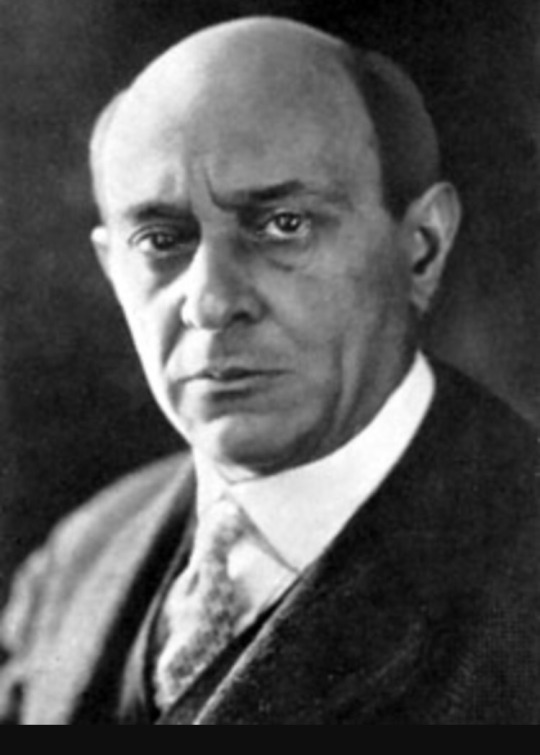
Identiteit: -naam: Schönberg -voornaam: Arnold -nationaliteit: Oostenrijk -geboortedatum: 13 september 1874 in Wenen -sterfdatum: 13 juli 1951 in Los Angeles Belangrijkste composities: -Verklärte Nacht -Gurre-Lieder -Pierrot Lunaire Bespreek een compositie: Fragment: Verklärte Nacht, Op.4 - Boulez. (Van 0-2 min) Bouwstenen: het fragment is in dit heel dynamisch en het heeft een traag tempo Mening: ik vind deze muziek persoonlijk niet goed. Ik zou deze muziek nooit zelf luisteren want ik vind het ritme en melodie niet zo goed. Bronvermelding: wikipedia
1 note
·
View note
Text
CANCELADOS ATÉ 3 DE APRIL — A PANCADA DO COVID 19 NA MINHA MÚSICA .
GULBENKIAN
Giuseppe Verdi, Quatro peças sacras
Anton Bruckner, Sinfonia n.º 9, em Ré menor
Robert Schumann, Abertura, Scherzo e Final, op. 52
Felix Mendelssohn-Bartholdy,Concerto para Violino e Orquestra, em Mi menor, op. 64
Robert Schumann, Sinfonia n.º 2, em Dó maior, op. 61
Arnold Schönberg, Noite Transfigurada (Verklärte Nacht), op. 4
Alexander Zemlinsky, Sinfonia lírica, op. 18
(para soprano, barítono e orquestra)
Wolfgang Amadeus Mozart, Sinfonia n.º 40, em Sol menor, K. 550
Dmitri Chostakovitch,,Concerto para Violino e Orquestra n.º 1, em Lá menor, op. 77
S.CARLOS /CCB,
As Walkirias de Richard Wagner ADIADO
Transmissão da ROH para os cinemas da UiCC a 17 de Março
FIDELIO
0 notes